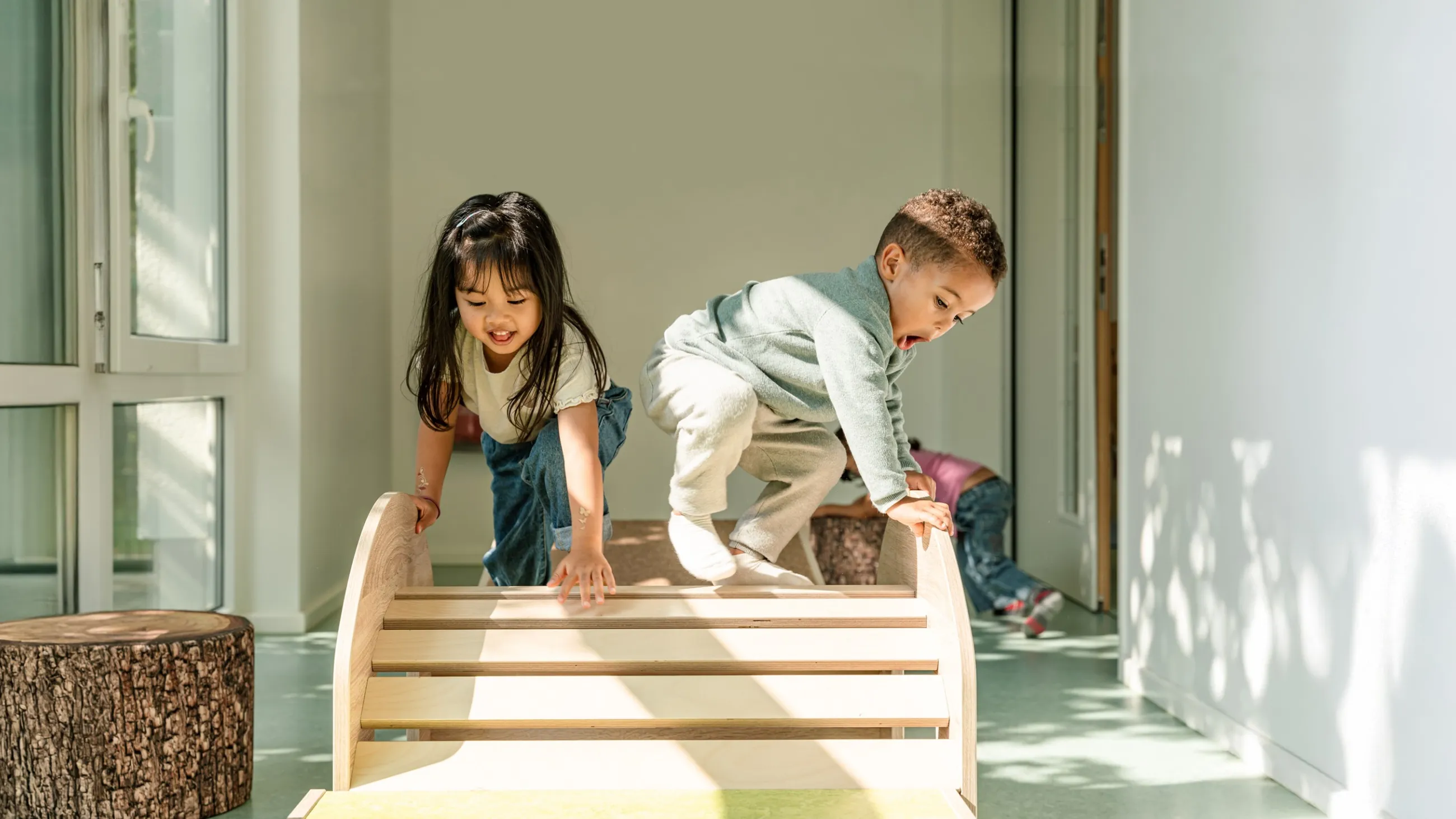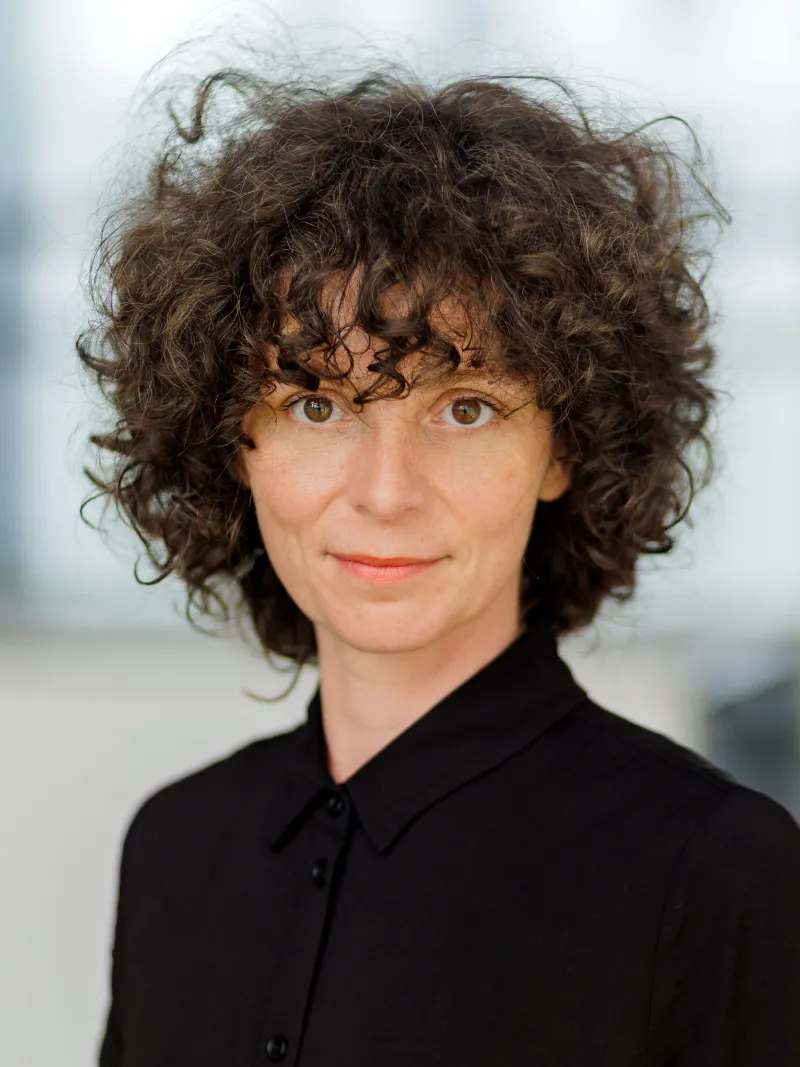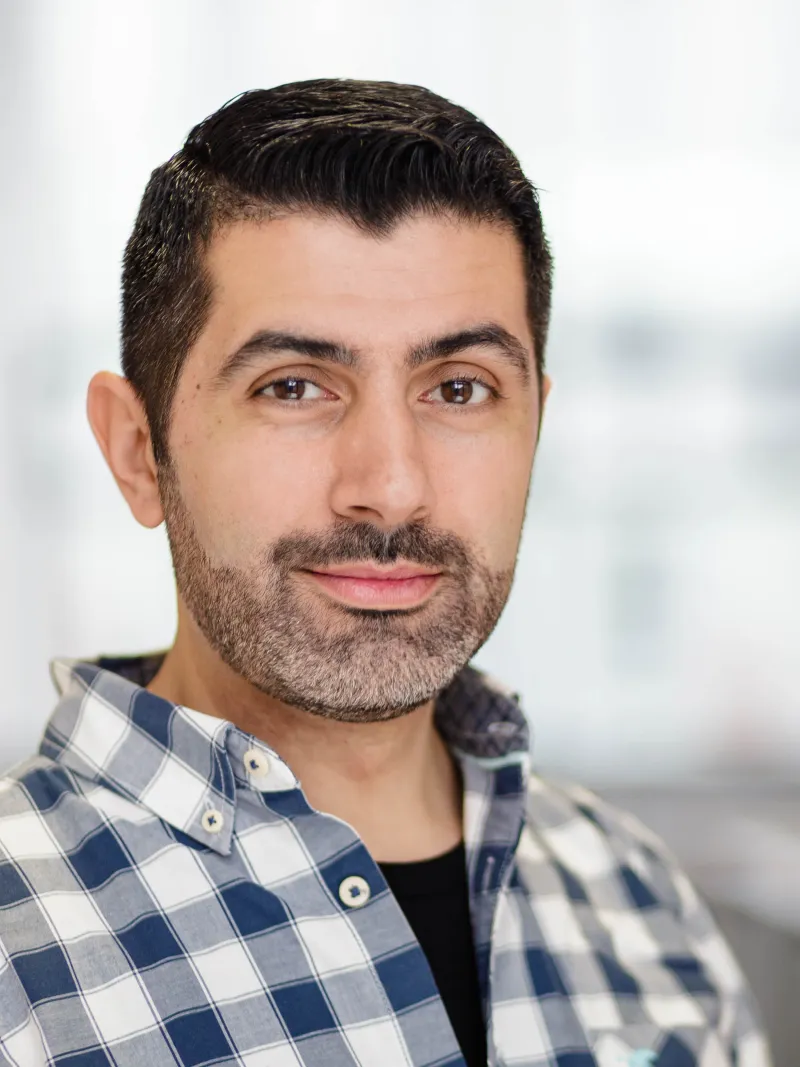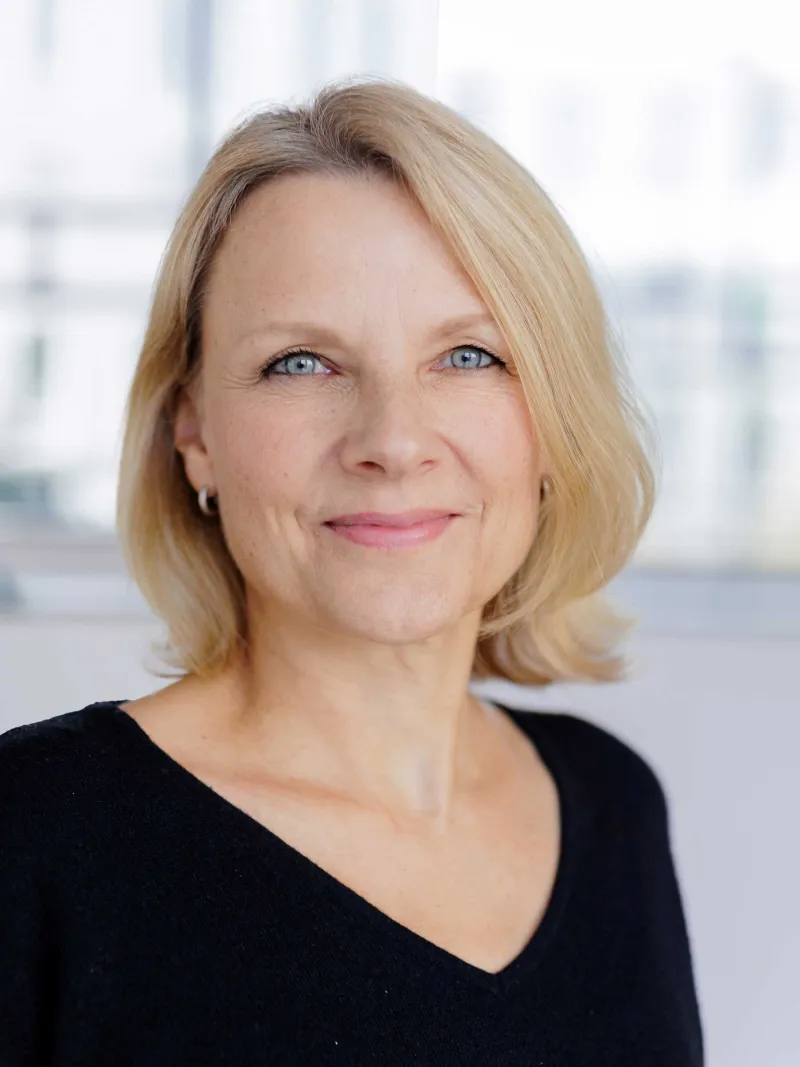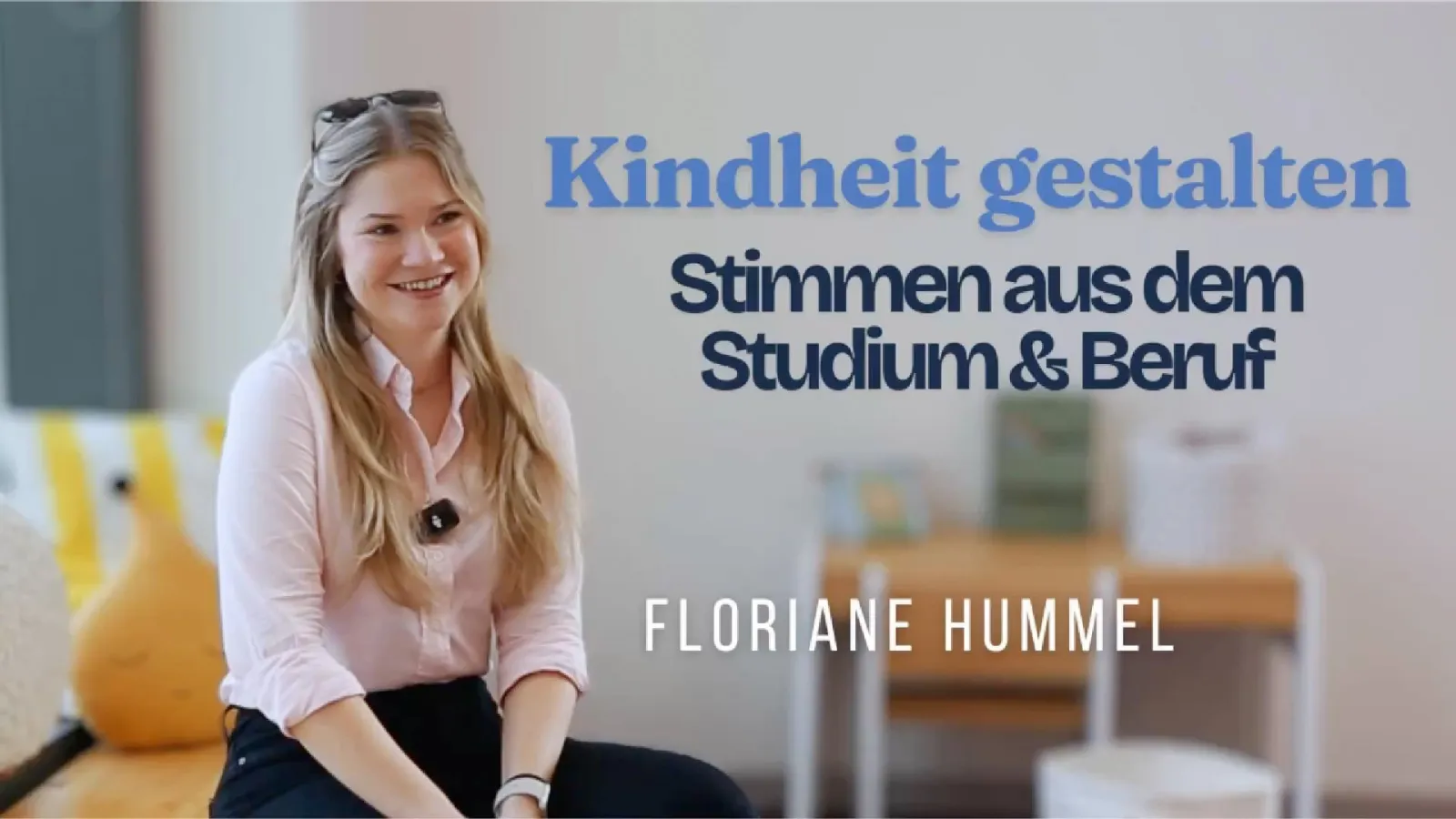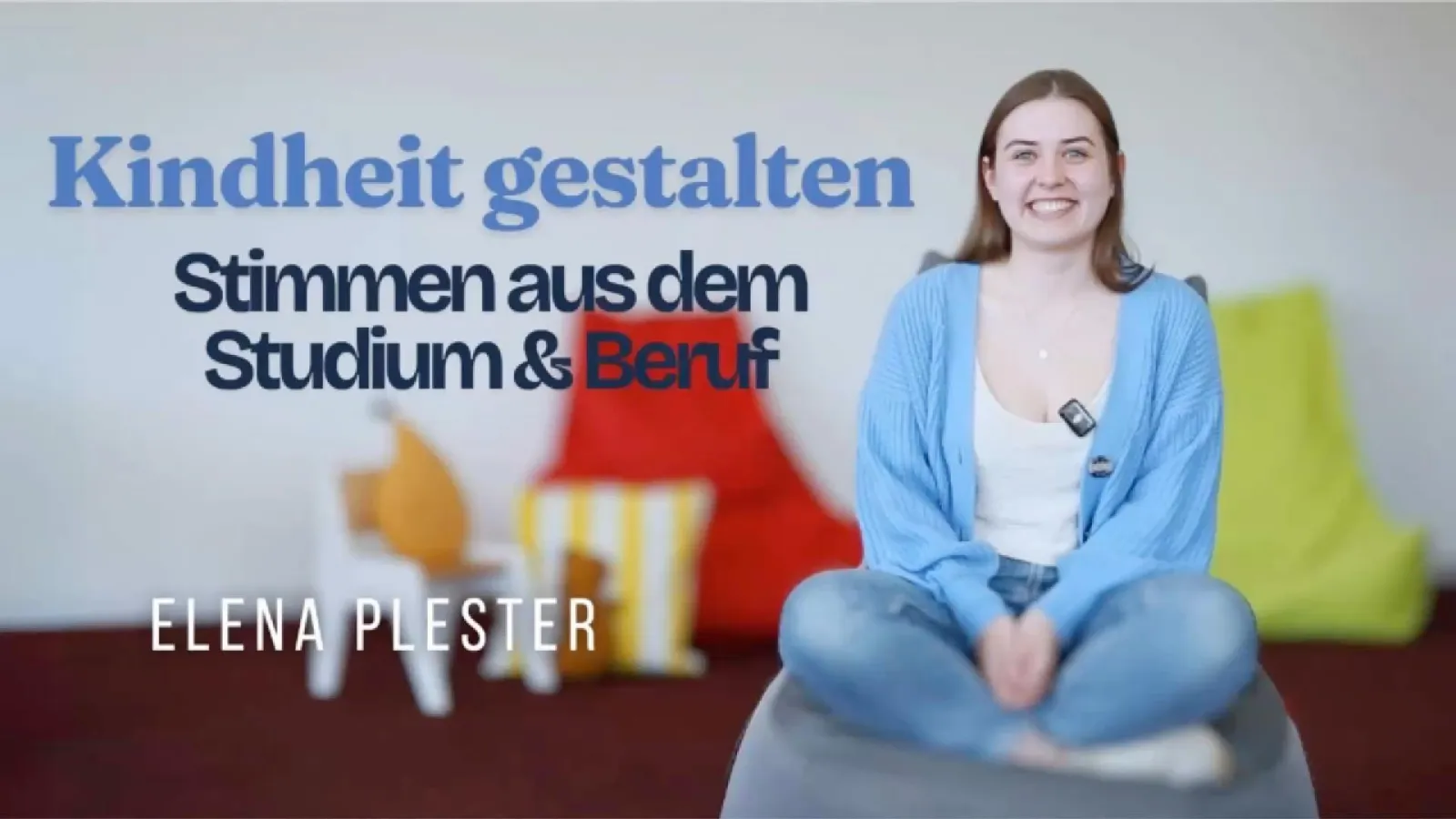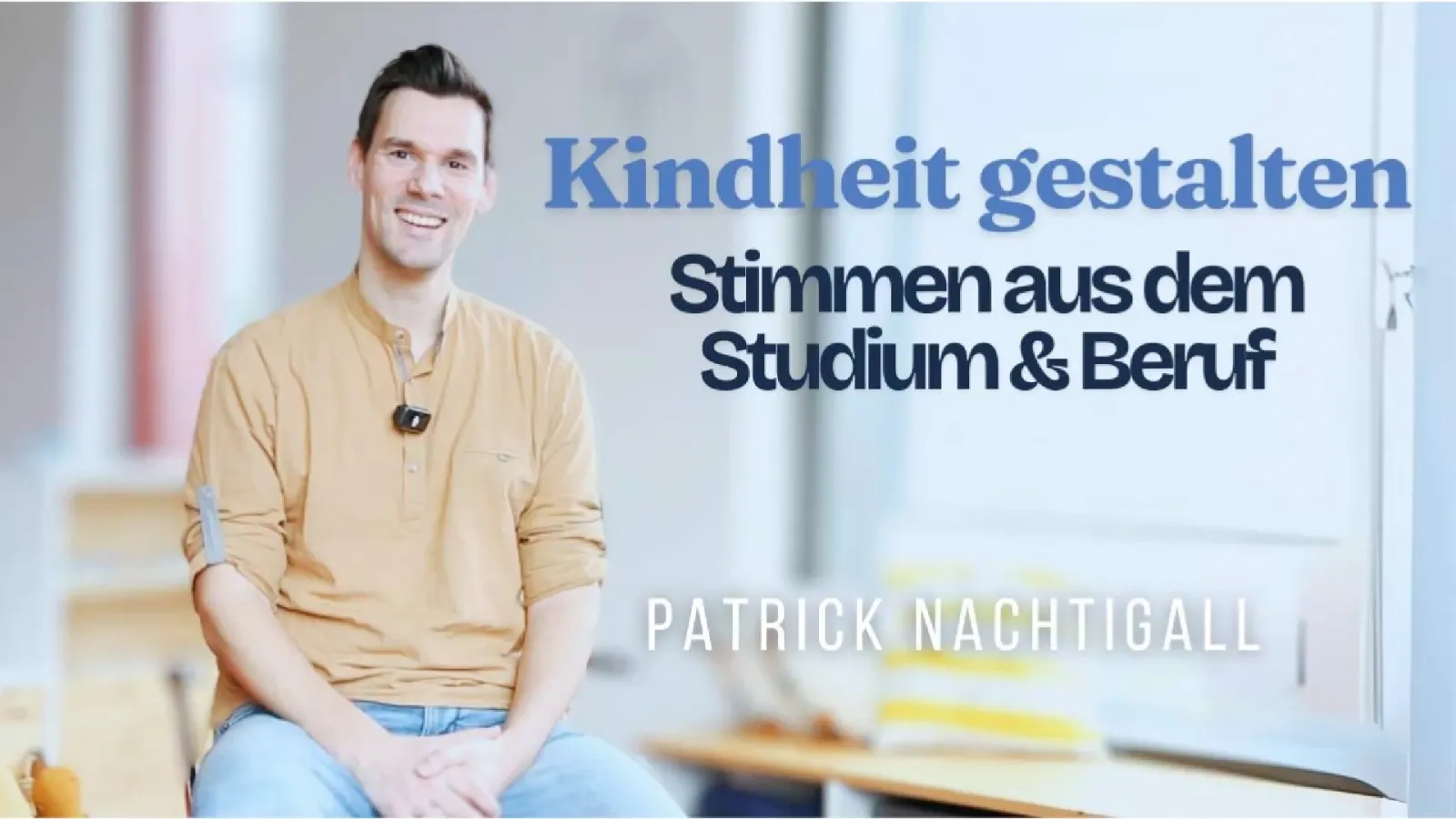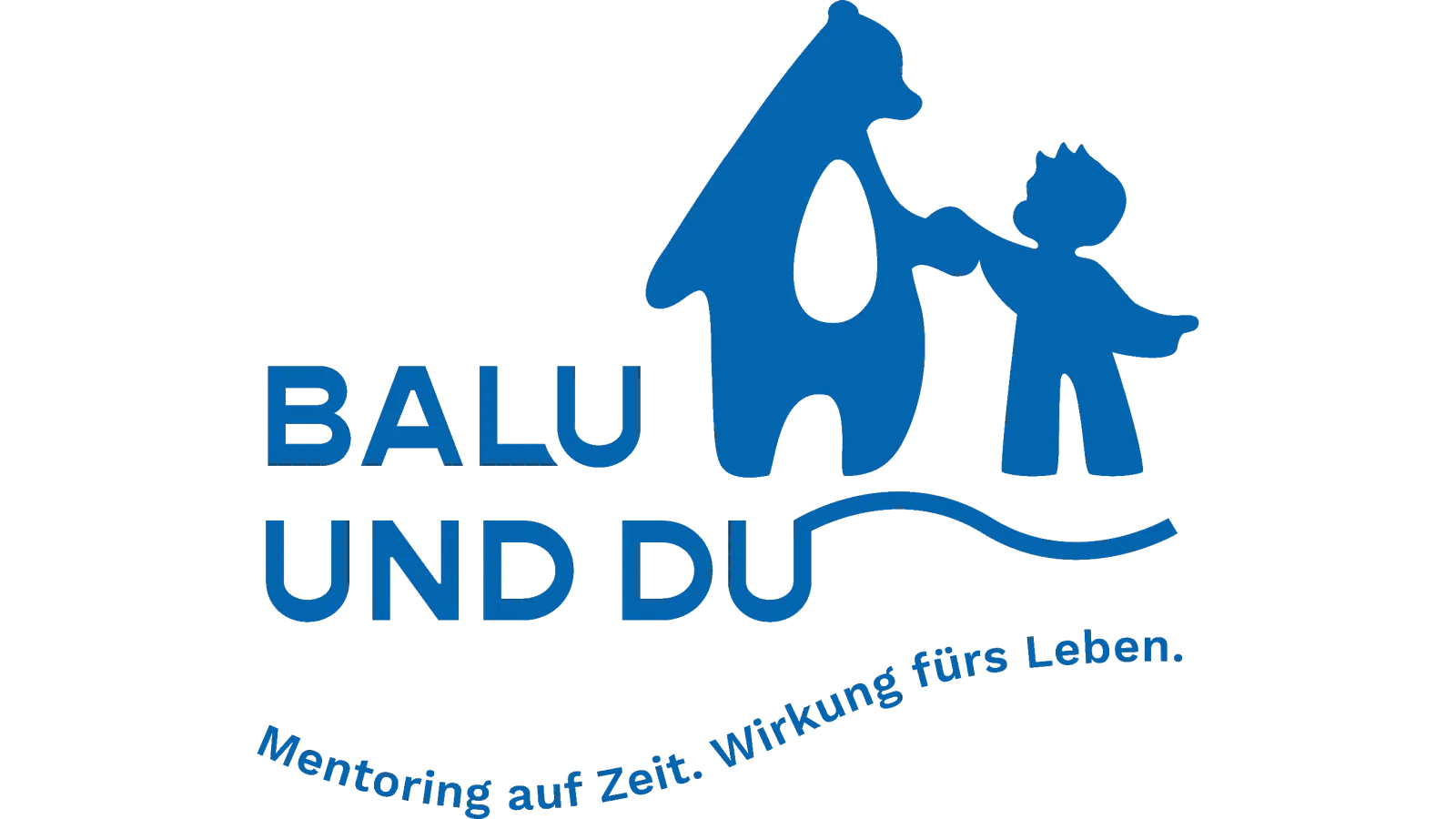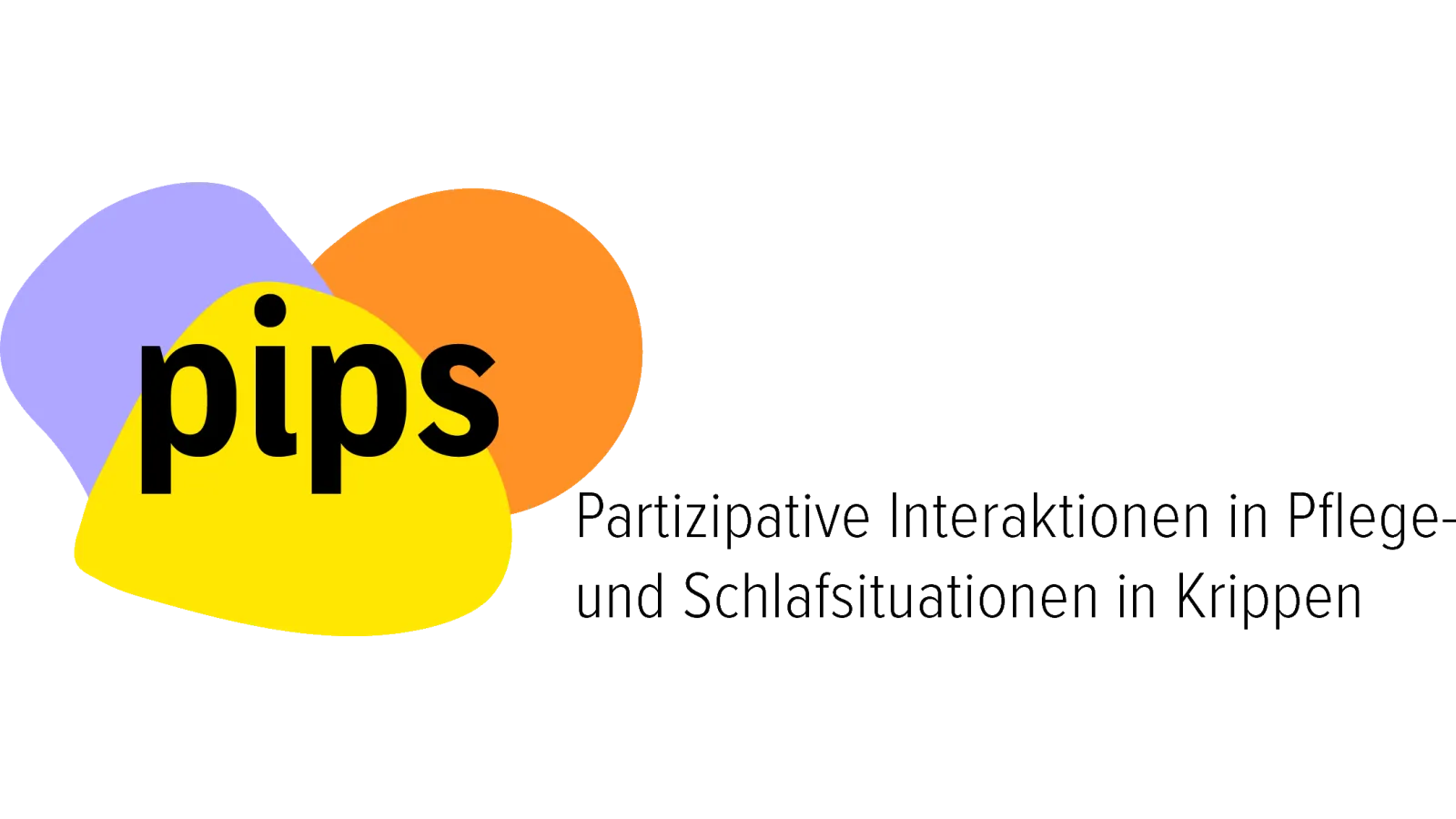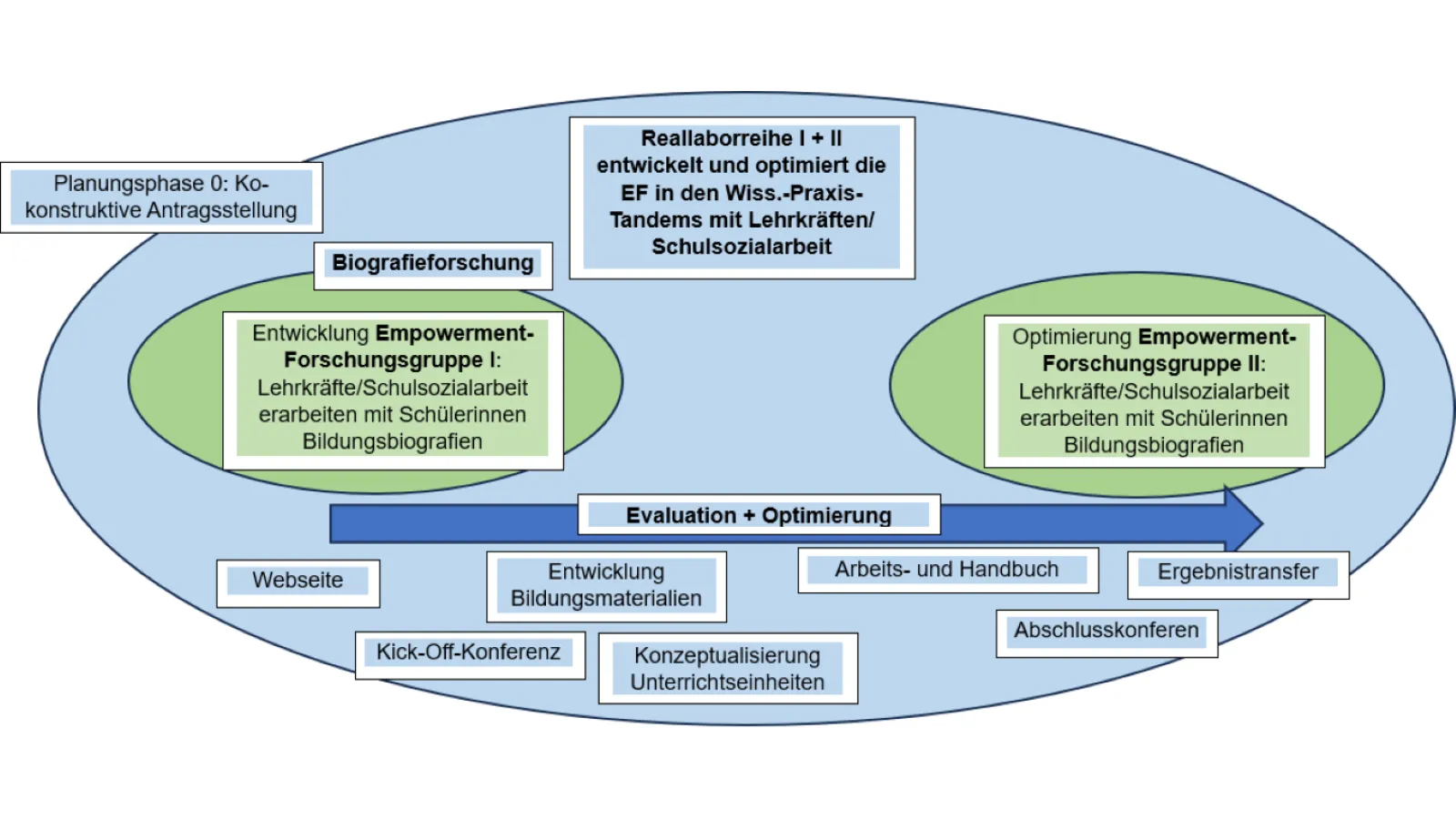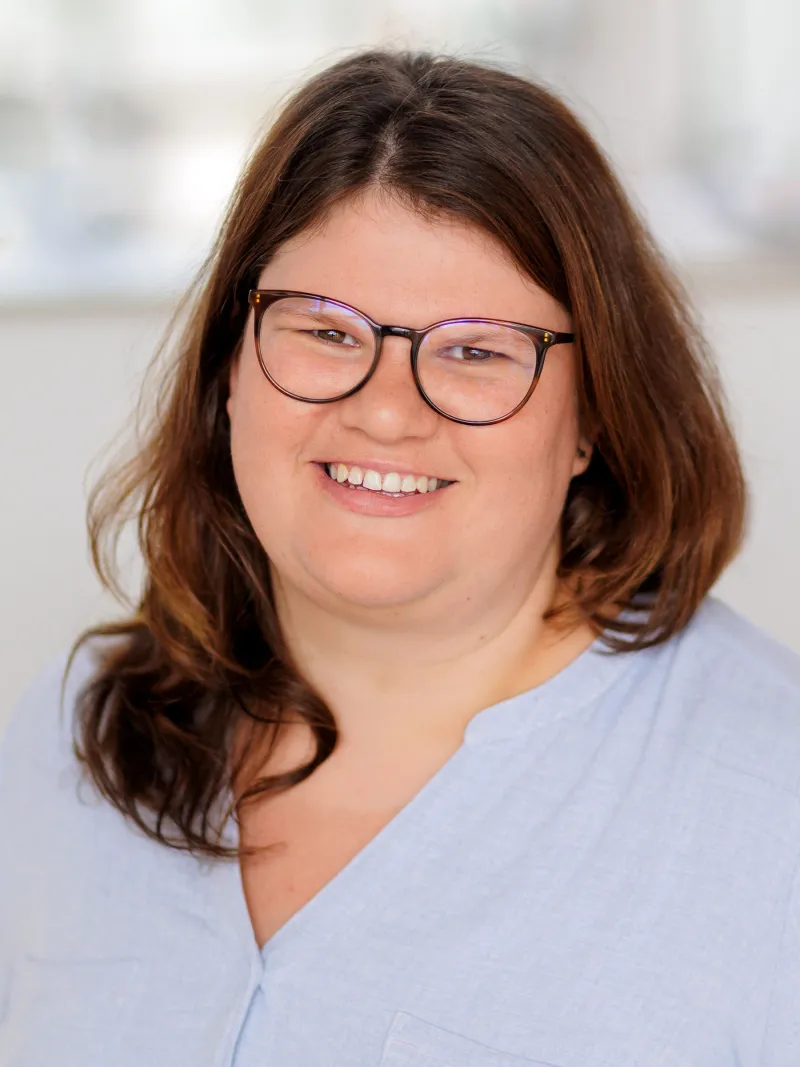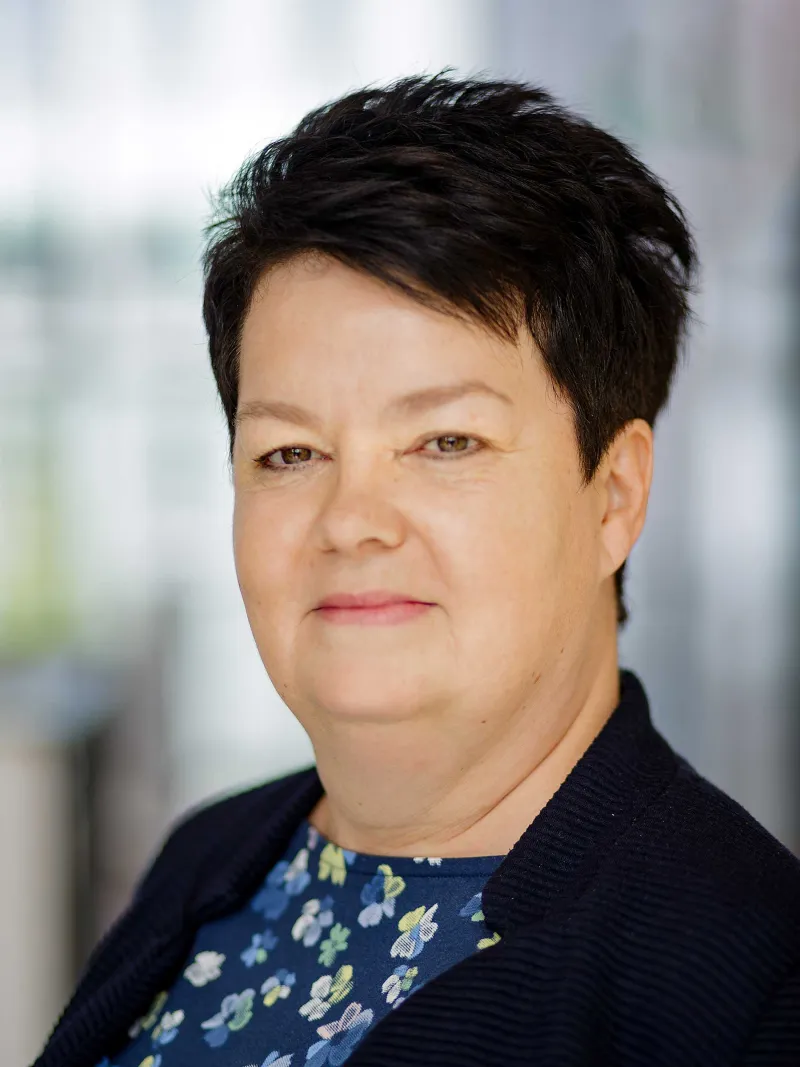Are you interested in how children develop and learn? Would you like to work with children and their families? If so, our bachelor's degree programme in "Early Childhood Education" is made for you! In this practice-oriented programme, you will learn to support and guide children aged 0 to 12 years and their families in daycares, kindergartens, family centers, and more. Upon completion, you will receive state recognition as a childhood educator.
Early Childhood Education (BA)
6 semesters; incl. practice days and weeks totaling 840 hours
15/05 – 15/07 (admission restricted)
180 ECTS credits
The Study
Committed to the youngest
The six-semester full-time programme enables you to understand, reflect on and shape your work with children and families. You will study in seminars with a high degree of practical relevance and explore a variety of subjects related to childhood and families as well as learn to think, work, and conduct research in a scientific manner. Throughout your studies, you will gain practical experience in childhood education institutions. This will allow you to apply your specialized knowledge directly.
The degree of Early Childhood Education qualifies you for educational work with children from birth to 12 years and for working with families. It enables you to obtain state recognition as a childhood educator.
Find out more about study contents, career prospects and the application procedure for our degree programme.
After enrolment, you can apply for recognition of competences acquired outside the university, e.g. from a previous training programme.
Study in a personalised learning atmosphere
During your studies, you will meet other students and lecturers who are committed to achieving good and fair living conditions for children and families. Small seminar groups enable direct and close interaction with fellow students and lecturers. You will study in an environment that encourages your individual strengths. Students support each other through the Students4Students project. A dedicated team will help you combine your studies with family life by offering e.g. flexible childcare options. Are you curious? Watch the film to gain more insights.
Campusleben
Der Campus der FH Potsdam ist überschaubar – hier trifft man sich. Das Campusleben bietet Ihnen viele Möglichkeiten, Ihren eigenen Interessen nachzugehen. In unserer Bibliothek können Sie in Ruhe lesen und Hausarbeiten schreiben, aber auch in Gruppen zusammenarbeiten. Das studentisch geführte Kulturzentrum Casino ist ein Ort, an dem Sie sich treffen, austauschen und entspannen können. Mehrmals im Jahr finden hochschulweite Feste statt, z. B. das Sommer- und das Weihnachtsfest.
Tipps zum Wohnen in Potsdam finden Sie hier.
Is this degree programme right for me?
You have these qualities
- Interest and willingness to familiarise yourself with the fields of daycare and kindergarten
- Empathy and good observation skills
- Interest in the individual development and educational processes of children
- Openness and communication skills towards children and adults
- Willingness to self-reflect
- Interest in scientific work and the development of your own questions
- Enjoyment in creative activities
Podcast of our campus specialists
Saskia and Gorden who study Early Childhood Education inform prospective students about their degree programme. In this podcast, they share their personal experiences of student life and their course.
Podcast of our campus specialists
Saskia and Gorden who study Early Childhood Education inform prospective students about their degree programme. In this podcast, they share their personal experiences of student life and their course.
Opening pathways to the world - international childhood education
Would you like to discover the world during your degree programme? Take the opportunity to spend a semester or complete an internship abroad without extending your studies. You will gain valuable experience and broaden your understanding of childhood education practices in other countries, as well as acquiring valuable skills for a multilingual professional life.
You can also obtain the "Childhood Education Track International" certification by taking a language course, a seminar on international education plans, and a specialised English-language seminar of your choice, in addition to your experience abroad. This will enhance your international profile.
Contact:
Contact
The colleagues at the student counselling service provide information to prospective students, first-year students, parents, teachers and students on all general questions about the degree programme. If you have specific questions or concerns about the part-time distance learning programme in social work (BA), please contact the subject counselling service or the programme coordination.
Head of Degree Programme
Subject Counselling Service
Study Programme Coordination
These degree programs might also interest you
More courses| Department | Degree programme | Teaching language | Start of study | Application deadline |
|---|---|---|---|---|
| |
Childhood Education Dual (BA)* | German | Winter semester | 15/06 – 15/08 (admission-free) | |
| |
Early Childhood Education (BA) | German | Winter semester | 15/05 – 15/07 (admission restricted) |
| |
Early Childhood Studies (MA) | German | Winter semester | 15/06 – 15/10 (free of admission) |
| |
MA Social Work with a Focus on the Family | German | Winter semester | 15.05. – 22.06. (NC degree program) |
| |
Social Work (BA) | German | Winter semester | 15/05 – 15/07 (restricted admission) |
| |
Social Work (part-time for professionals) (BA) | German | Summer semester | 15/12 – 15/01 (admission restricted) |
| |
Social Work Dual-Digital (BA) | German | Winter semester | 15/06 – 15/07 (free of admission) |
| |
Sustainable Social Work: Child/hood and Family (MA)* | German, English | Winter semester | 15.05. - 22.06. (admission restricted) |
Career Prospects
Childhood educator - one profession, many perspectives
State-recognized childhood educators are in high demand in childcare and many other fields of work.
After studying childhood education at the University of Applied Sciences Potsdam, you will enrich multi-professional teams through your specialization in working with children up to the age of twelve and working with their families as well as your inquiring mind.
Learn more about the professional profile of childhood educators.
Possible occupational areas
- Pedagogical work in institutions of (early) childhood education such as daycare, kindergartens, after-school care centers, mixed age facilities, all-day schools, family centers, primary schools
- Cooperation in counseling centers and family centers, early help, psychosocial counselling, family and educational counselling
- Educational help
- Child protection
- Integration assistence for children
- Sports, leisure, media and cultural programmes for children and families
- Political education work and advocacy for children and families
- Counselling for early education centers
- Consultancy services in the fields of quality development and organisational consulting
- Training and further education
- Universities and research institutions
Possible MA programs at the University of Applied Sciences Potsdam

State recognition as a childhood educator
After obtaining the BA degree, you can apply for state recognition as a childhood educator. The basis for state recognition is the Brandenburg Social Professions Act. On the pages of the Ministry of Education, Youth and Sports of the State of Brandenburg you will find all important information.
The fact sheet of the Ministry of Education, Youth and Sports of the State of Brandenburg summarizes the documents to be submitted for state recognition as a childhood educator.
These degree programs might also interest you
More courses| Department | Degree programme | Teaching language | Start of study | Application deadline |
|---|---|---|---|---|
| |
Childhood Education Dual (BA)* | German | Winter semester | 15/06 – 15/08 (admission-free) | |
| |
Early Childhood Education (BA) | German | Winter semester | 15/05 – 15/07 (admission restricted) |
| |
Early Childhood Studies (MA) | German | Winter semester | 15/06 – 15/10 (free of admission) |
| |
MA Social Work with a Focus on the Family | German | Winter semester | 15.05. – 22.06. (NC degree program) |
| |
Social Work (BA) | German | Winter semester | 15/05 – 15/07 (restricted admission) |
| |
Social Work (part-time for professionals) (BA) | German | Summer semester | 15/12 – 15/01 (admission restricted) |
| |
Social Work Dual-Digital (BA) | German | Winter semester | 15/06 – 15/07 (free of admission) |
| |
Sustainable Social Work: Child/hood and Family (MA)* | German, English | Winter semester | 15.05. - 22.06. (admission restricted) |
Study Contents
Study Contents
In the currently valid module handbooks and study and examination regulations of the Department of Social Sciences and Education you will find the module overview, a detailed description of the modules and course content as well as the study plan for the degree programme Early Childhood Education. The module overview for the degree programme and the overview of the degree programme curriculum also contain information on the structure and content of the degree programme. Here you will find further information on the practical days and internships. All course times and course details can be found in the current course catalogue.
On the Early Childhood Education degree programme, we use a variety of learning methods to ensure knowledge is transferred appropriately and to make everyday study life varied.
Teaching formats
In the degree program Early Childhood Education (BABEK), we work with different forms of learning so that the transfer of knowledge fits the respective topic and the students' daily study routine is varied.
- Seminars and lectures
- Self-organized study groups
- Workshop seminars
- Excursions
- Practical days and longer internships
- Cooperation projects outside the university
Workshop modules
- Observation and documentation
- Bonding, education and promotion
- Project development
Foundation modules
- Methods of empirical social and educational research
- Competencies in childhood education
- Education and educational science
- Developmental psychology and psychoanalytical concepts
- Legal foundations
- Leading and guiding
- Inclusion and Diversity
- Bachelor thesis and colloquium
Elective modules
- Educational aesthetics (music or theater)
- Applied social and educational research
- Educational area health and movement (dance or psychomotricity)
- Development and support (psychoanalytical thinking and acting or reform and elementary school pedagogy)
- Educational area Communication and Science (Literacy, New Media or Children's/Picture Books)
- Flex module (elective offered by all departments of the university)
Recognition of competences acquired outside of university
You will find questions and answers on the recognition of competences acquired outside of university below.
Projects from the department
More projectsMyAppMyData
App prototyping as an inclusive teaching-learning arrangement for the integrative development of digital skills at upper secondary level.
Participatory Interactions in Care and Sleep Situations in Daycare Centres (PIPS)
The aim of the "PIPS" project is to strengthen the participation of infants and toddlers in childcare centres. To this end, interactions in care and sleep situations are being analysed throughout Germany in order to gain a comprehensive picture of current practice. Based on the data obtained, concepts are being developed to support educational professionals in promoting children's rights and…
PowerMii: Empowerment research groups for girls from a migrant background, focusing on biographical work, in rural vocational schools.
In Germany, girls with a migration background face major challenges in vocational preparation due to multiple educational disadvantages, particularly in rural regions. This is where the PowerMii project steps in: By collaborating with science, school social work and vocational schools, innovative teaching units are created to empower research groups.
FAQ
Frequently asked questions about the bachelor's degree program "Early Childhood Education"
Application & Contact
Dates & requirements for your application
The most important deadlines, dates and admission requirements for the bachelor's degree programme in early childhood education are compiled here. You can find out which steps you need to take for a successful application in the next section.
Dates
- 24th of May 2025: Open Day at the FH Potsdam
- until 15th of July: register and submit online application
- until 15th of July: apply for a higher semester to continue a degree programme you have started at the University of Applied Sciences Potsdam
Access requirements
- General university entrance qualification according to the Brandenburg university act: General university entrance qualification or entrance qualification for studies at universities of applied sciences or previous vocational training recognised as equivalent
How to apply!
In the following, we explain which aspects you should consider from registration for the central allocation of study places to enrolment.
Further information
The following links provide you, and especially international applicants, with further information on the topics of application and enrolment at the University of Applied Sciences Potsdam.
International applicants
You would like to apply for studies from the first or a higher semester and have acquired your school-leaving qualification and/or university degree abroad? Then you can have degrees and achievements acquired abroad recognised and study with us.
Application & Enrolment Procedure
The application and study service provides information and advice on general questions regarding the application process, admission and enrolment at the University of Applied Sciences Potsdam, application for a higher semester, but also on topics such as compensation for disadvantages, part-time studies, waiting semesters and hardship applications.
Contact & Services
The student counselling service provides information and advice on general questions about studying as well as on topics such as choosing a degree programme, application, enrolment and study organisation.
For subject-specific questions about module content, credit transfer, examinations or specialisations in the early childhood education degree programme (BA), the subject counselling service or programme coordination is the right place to go.
Head of Degree Programme
Subject Counselling Service
Study Programme Coordination
Study and Examination Service
Study Info Service
studien-info-service@fh-potsdam.de
bewerbungs-service@fh-potsdam.de
campuskarte@fh-potsdam.de
Study Service
studien-service@fh-potsdam.de
Exam Service
pruefungs-service@fh-potsdam.de
Family Affairs Commissioner
Office hours
Tue and Thu 9.30 am – 1.30 pm
Commissioner for University Employees with Impairment
Office hours
Monday and by appointment
